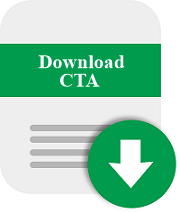Gharar, Fraud and Dispute in Islamic Business Transaction an Islamic Law Perspectives
DOI:
https://doi.org/10.56897/iefr.v1i2.18Keywords:
Keywords: Dispute, Fraud, Gharar, Islamic Business, Islamic LawAbstract
Islam adheres to the principle of justice in carrying out muamalah activities, especially in the economic field. Fairness is the main principle and foundation of business relationships between sellers and buyers. Fair means that business activities must be fair and mutually beneficial and do not cause harm to one party, so that the injured party feels aggrieved by the other party. One practice that may harm one party in a business is the practice of gharar. Gharar is an attempt to gain profit illegally way according to Islamic law because it causes the transfer of rights in a false way which has been strictly forbidden by Allah Subhanawu wa Ta'ala. Although Muslim scholars and scholars differ in expressing the definition of gharar, it explicitly has a mutual meaning. In Islamic legal texts fraud (tadlis or khilaba), lesion or misrepresentation (ghabn), gross misrepresentation (ghabn fahish), deception (shushsh), imbalance (gharar), and trickery (taghrir) are used interchangeably as to mean fraud. Such practices can lead to disputes. This research uses a descriptive qualitative method by studying the literature, both classical, contemporary, and scientific journals. The results of the study found that gharar was forbidden because of the presumption between the two transacting parties. Disputes are a danger that will lead to bloodshed between Adam's children and grandchildren. The danger must be removed (al-dhararuu yuzalu). Thus the unavoidable minor gharar caused by unavoidable gharar is unavoidable and unavoidable transactions that have been agreed upon between the seller and the buyer.
Keywords: Dispute, Fraud, Gharar, Islamic Business, Customer Satisfaction
References
Ali Achmad Chomzah. (2003). Hukum Pertanahan: Seri III Penyelesaian Sengketa Atas Tanah. Jakarta: Perpustakaan Nasional.
Aljauziyah, I. al-Q. (1990). Zadu al-Ma’ad. Kuwit: Muassasah al-Risalah.
Anogara, Pandji and Soegiastuti, J. (1996). Pengantar Bisnis Modern: Kajian Dasar Manajemen Perusahaan. Jakarta: Pustaka Jaya.
Ibnu Mandhur, J. M. (n.d.). Lisan al- Arab. Cairo: Daar al-Ma’arif.
Iqbal, Zamir and Mirakhor, A. (2011). An Intruduction to Islamic Finance (2nd ed.). Singapore: John & Wiley.
Jurjany, A. M. S. (1955). Al-Ta’rifaat. Beirut: Lebanon Press.
Karebet and Yusanto. (2002). Mengagas Bisnis Islam. Jakarta: Gema Insani Press.
al-Mawardy, A. M. H. (2006). Al-Hawie al-Kabir. Beirut: Daar al-Kotob al-Ilmiyah.
Moleong, L. J. (2021). Metodologi Penelitian Kualitatif. Bandung: Rosdakarya
Nadawy, A. A. (1994). Al-Qawaid Al-Fiqhiyah (3th ed.). Damaskus: Daar El-Qalam.
al-Nawawi, M. Y. bin S. (1994). Shahih Muslim Bi Syarh Al Nawawi. Cairo: Muassasah Qurtoba.
al-Qahthany, F. M. (n.d.). Al-Qawaid wa Al-Dhawabith Al-Fiqhiyah Al-Muatsirah fii Al-Muamalah Al-Mashrafiyah. Madinah: Muassasah al-Risalah.
al-Qarafy, S. A. I. (2001). Kitab Al-Furooq. Cairo: Daar El-Salam.
al-Ramly, S. M. (2003). Nihayah al_Muhtaaj. Beirut: Daar al-Kotob al-Ilmiyah.
al-Sa’di, A. bin N. (2006). Tafsir al-Karim al-Rahman. Beirut: Muassasah al_risalah.
al-Suyuthi, J. (1983). Al-Asybah wa An-nadzair. Beirut: Daar El-Kutub Al-Ilmiyah.
al-Zuhaily, W. (1996). al-Fiqhu al-Islamy wa Adillatuhu. Damaskus: Daar el- Fikri.
(b) Journals
Aminatun, S., & Mukhibad, H. (2021). Determinants Of Fraudulent Financial Statement On Islamic Banks In The Perspective Of Crowe’s Fraud Pentagon Theory. Gorontalo Accounting Journal, 4(1), 69. https://doi.org/10.32662/gaj.v4i1.1358
Anwar, M., Yaswirman, Y., & Ulfanora, U. (2019). Dispute Resolution of Shariah Economy in Murahabah Financing Contract in Sahabat Mitra Sejati Cooperatives. International Journal of Multicultural and Multireligious Understanding, 6(3), 72. https://doi.org/10.18415/ijmmu.v6i3.768
Daradaka, Y. A. (1973). Nadzariyat al Gharar Fii al-Sayriah al-Islamiyah. Lebanon: Ministery of Waqf and Islamic Affairs. https://doi.org/10.18415/ijmmu.v6i3.768
Hidayatullah, I. (2018). Pandangan Ibnu Khaldun Dan Adam Smith Tentang Mekanisme Pasar. Iqtishoduna, 7(1), 117–145. Retrieved from https://www.iaisyarifuddin.ac.id/ejournal/index.php/iqtishoduna/article/view/211
Ibrahim, S. S., Man, N. C., & Noor, A. H. M. (2013). Fraud: an Islamic Perspective. The 5th Islamic Conference on FInancial Crimonology, (November 2014), 446–457.
Muhammad Hifdil Islam. (2016). Ibnu Taimiyah and His Concept of Economy. Iqtishoduna: Jurnal Ekonomi Islam, 5(1), 15–33.
Nehad, A., & Khanfar, A. (2016). A critical analysis of the concept of gharar in Islamic financial contracts: Different perspective. Journal of Economic Cooperation and Development, 37(1), 1–23.
Norvadevi. (2015). Business Dalam Perspektif Islam. Jurnal Ekonomi Dan Bisnisn Islam, Al-Tijary, 01(December), 1–6.
Puspitha, M. Y., & Yasa, G. W. (2018). Fraud Pentagon Analysis in Detecting Fraudulent Financial Reporting ( Study on Indonesian Capital Market ). International Journal of Sciences: Basic and Applied Research (IJSBAR), 42(5), 93–109. Retrieved from http://gssrr.org/index.php?journal=JournalOfBasicAndApplied
Rahman, M. F. (2018). Hakekat dan Batasan-Batasan Gharar Dalam Transaksi Maliyah. SALAM: Jurnal Sosial Dan
Budaya Syar-I, 5(3), 255–278. https://doi.org/10.15408/sjsbs.v5i3.9799
Shohih, H. (2021). PERSPEKTIF HUKUM ISLAM MENGENAI PRAKTIK GHARAR. 12(April), 69–82.
Veithzal Rivai Zaenal. (2017). Islamic Marketing Management. Jakarta: Bumi Aksara.
Wae Ibrorhim Wae Mustafa, & Sukri, S. (2016). Theory of Gharar and its interpretation of Risk and Uncertainty from the perspectives of Authentic Hadith and the Holy Quran : Review of Literatures. International Journal of Economic Pespectives, 10(1), 1–27.
Yusuf, M., & Iswandi, I. (2021). Praktik Jual Beli Jahe Menurut Hukum Islam; Studi Kasus Di Usaha Dagang Areba Jahe, Jakarta Timur. Journal of Islamic Law, 5(1), 57–74. Retrieved from http://jurnal.iain-padangsidimpuan.ac.id/index.php/yurisprudentia
Downloads
Published
How to Cite
Issue
Section
License
Copyright (c) 2022 Ahmad Farikhin, Heni Mulyasari

This work is licensed under a Creative Commons Attribution 4.0 International License.
<a rel="license" href="http://creativecommons.org/licenses/by/4.0/"><img alt="Creative Commons License" style="border-width:0" src="https://i.creativecommons.org/l/by/4.0/88x31.png" /></a><br />This work is licensed under a <a rel="license" href="http://creativecommons.org/licenses/by/4.0/">Creative Commons Attribution 4.0 International License</a>.









